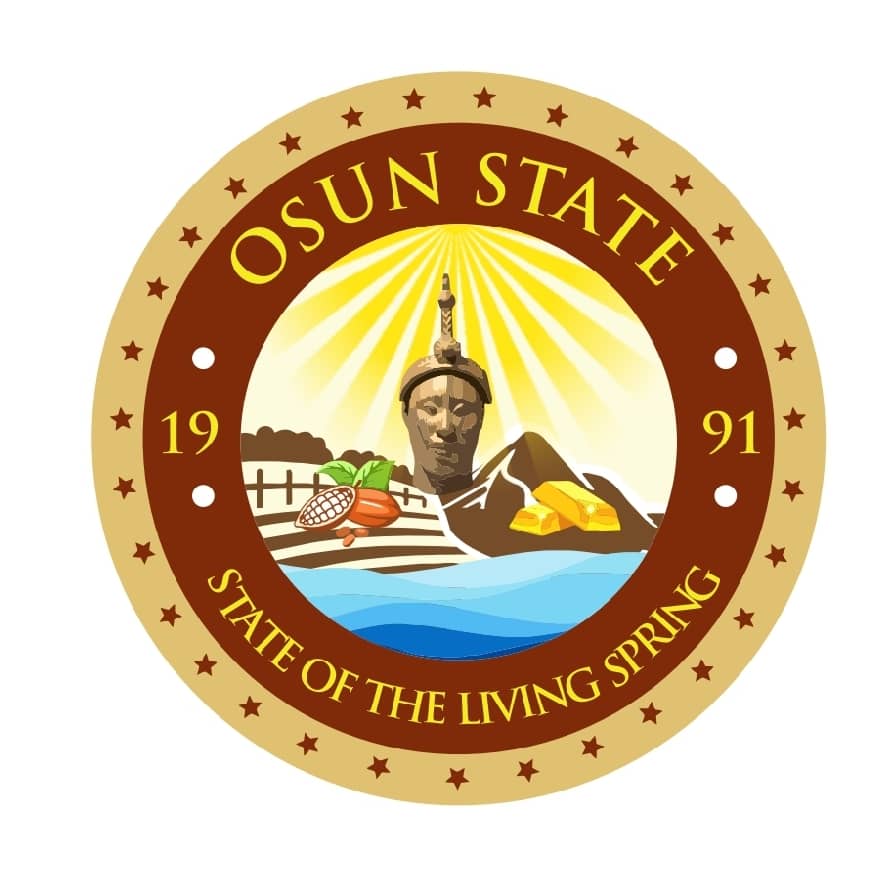RE: The Sole Adminstrator By Biodun Komolafe And Kunle Owolabi
The article, ‘The Sole Administrator’ published in Thisday, January 9, 2017, refers.
To start with, can Governor Rauf Aregbesola be referred to as “the sole administrator” of Osun State, taking into consideration that he is only a victim of circumstances that are not due to his fault but were as a result of how the economy has played out? The answer, of course, is ‘No’! On the other hand, has the governor breached any laws of the land by not appointing commissioners “almost three years since his re-election”? As we are all aware, the establishment and composition of cabinet for a state is provided for in the Constitution of Nigeria and each state is expected to constitute its own cabinet as and when convenient. There is no law directing that the composition must be simultaneous across the 36 states. Besides, no number is specified unlike in the case of Ministers of the Federal Government, which the constitution says must be one from each state of the federation.
Section 192 Sub-section 1 of 1999 Constitution (as amended) establishes the offices of commissioners for the states of the federation. Section 192 States inter alia: “There shall be such offices of Commissioners of the Government of a state as may be established by the Governor of the State.” In constituting such a cabinet, the Constitution also directed that the governor, in making the appointment, should conform with the provision of section 14 (4) of the constitution. And Section 14 (4) directed that the governor tailors his composition of a cabinet to reflect “diversity of the people within its area of authority and the need to promote a sense of belonging and loyalty among all the people of the federation (in this case, people of the state).”
From the foregoing provisions of the constitution, which is the ground norm guiding the running of the space called Nigeria, the commissioners, appointed not elected, are to assist the governors in the day-to-day running of the Ministries, Departments and Agencies (MDAs) for administrative convenience. Since no timeframe within which the governor should appoint commissioners was ever stipulated, the time to appoint is at the discretion of the governor. The legal implication of this section is that, by not appointing commissioners up until now, the governor has not in any way breached any section of the Constitution.
Constitutional provisions apart, the systematic running of government certainly goes beyond the appointment of commissioners alone. Government administration, either at the state or federal level, involves both political office holders and the civil servants. For instance, the most senior technocrat/civil servant in any government ministry is the Permanent Secretary and it is the next in rank to a Commissioner. Logically, therefore, a Permanent Secretary stands in the stead in the absence of a Commissioner. Thus, the Governor (Rauf Aregbesola); his Deputy, (Grace Titi Laoye-Tomori); Secretary to the State Government (Moshood Adeoti); and the Chief of Staff to the Governor (Gboyega Oyetola) are in office, ably supported by the Permanent Secretaries in the conduct of government businesses.
Believe it or not, the aforementioned political appointees and the Permanent Secretaries are also taken care of by the Constitution as “Governor-in-Council”. Which means, technically, a pseudo-cabinet is in place. Besides, all former commissioners in the state are around, making the sacrifice supporting and assisting the governor in the conduct of government businesses for the state, which is obviously going through an economic downturn. With this structure in place, governance in Osun has not for a day suffered any neglect. Rather, it has been running smoothly without let or hindrance.
It will be recalled that during his first term too, Aregbesola was quick to detect that the treasury was empty by the time he assumed office on November 27, 2010. As a way out of the woods, he had to devise an alternative means of generating revenue for the running of government. Hence, it took him eight months before he constituted his cabinet. That singular action saved for his budding administration several millions of naira which provided the springboard for easy running of government by the time the cabinet was constituted.
This time round, by the time he was re-elected in August 2014, signs of economic hardship had fully manifested, first in the state. The state’s monthly statutory commitment to workers was put at staggering N3.6 billion. However, without a cabinet in place; and, with the modulated salary structure adopted by the government in the wake of the economic challenge faced by the state, the statutory commitment reduced greatly to N1.7 billion. With the situation of things, one is in doubt if Aregbesola’s government would have survived till today. were the whole paraphernalia of the executive in place. In other words, had the governor constituted a cabinet, appointing at least 20 Commissioners and Special Advisers, the monthly wage bill would probably have been out of this world. Needless to repeat that all these Commissioners will also appoint aides in the process, which will no doubt add more burden to the existing huge ones. This Modus Operandi; that is, cutting of overhead cost, delay in the constitution of the cabinet, assistance being rendered by former Commissioners without drawing salaries, all have helped the state government in no mean ways. So far, so fair! Delay in appointing the commissioners, therefore, is a blessing in disguise.
Well, this is not an argument that cabinet is not necessary for the life of an administration. Far from that supposition! Only that one cannot but question the essence of a “constitutional democracy” that is lacking in funds to run its day-to-day affairs. In any case, the constitution of a cabinet is compulsory and the governor is committed to constituting it now that the hardship is gradually easing. Interestingly, he has hinted that a cabinet would soon be in place.
“Truth may be stretched, but cannot be broken, and always gets above falsehood, as does oil above water”, said Miguel De Cervantes. That Aregbesola “squandered his goodwill” is an old, worn-out tale that has taken – and will always take – its promoters nowhere. If indeed the governor has squandered his goodwill as the author would want us to believe, how come he beat the opposition to its tricks at the August 9, 2014, Osun governorship election? Well, that writer could describe the difference between 394,684 and 292,747 votes, with 23 out of the-then 30 Local Governments in favour of the winner as “managed to scale through” smacks of political mischief.
The writer also missed the point by describing members of the Osun State House of Assembly who were only diligently discharging their responsibilities in accordance with the laws of the land as ‘toothless bulldogs’. If they were, how come they had the audacity to probe the disbursement of the N34.9billion bailout fund which sanity and sanctity the author secretly acknowledged in his piece? Well, if the cordial and rewarding relationship that exists between the executive and the legislative arms of government in the state is ignorantly or mischievously misconstrued for the spirit and letters of ‘toothless bulldogism’, so be it!
The writer also attempted, futilely, to mislead the public by submitting that Osun, under, Aregbesola, was riled in poverty. Even, if the writer has forgotten the point at which the governor took off, he ought to have remembered that the state, under this pragmatic leader, was once the highest paying state in the country. When the going was smooth as a result of huge earnings accruing to the state from the sale of our crude oil, salaries, pensions and other allowances were paid as and when due. Even, workers at that time, were getting ’13th month’ without stress. All these continued until the country got enmeshed in the economic miasma occasioned by a sharp drop in oil prices. Even, at that, Aregbesola still continued to discharge his statutory responsibilities to the workers as can be seen in the up-to-date payment of salaries and pensions to the state civil servants and pensioners respectively.
Yes! Aregbesola’s government is “unusual”. And that’s what it is! Or how else do we describe an administration that has done so much in terms of infrastructure development of the state in so short a time?
May principalities and powers, assigned to rubbish our leaders’ efforts, scatter!
*KOMOLAFE and OWOLABI wrote in from Osun State.










